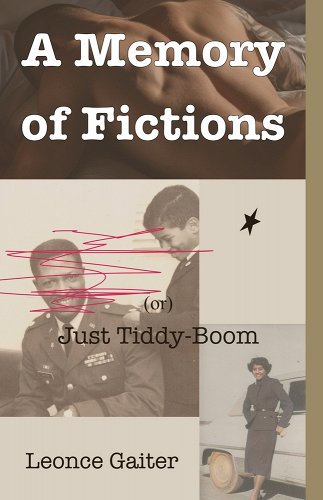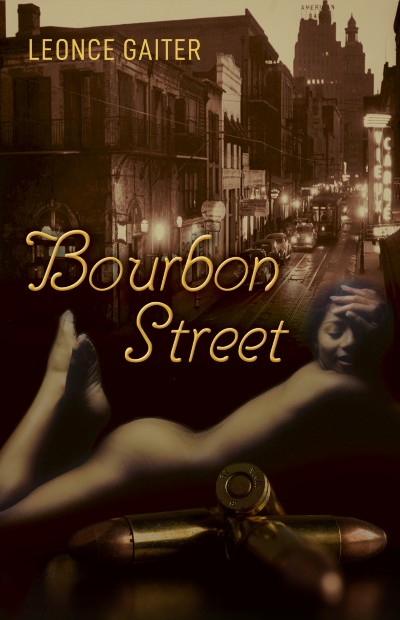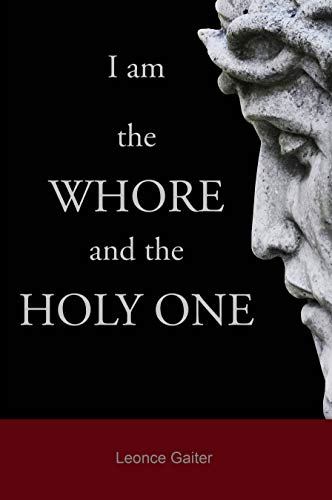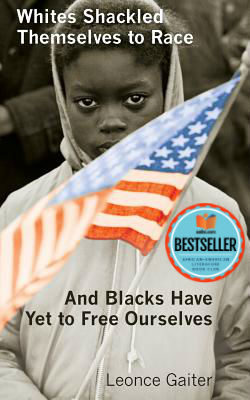5 Books Published by Legba Books on AALBC — Book Cover Collage
 A Memory of Fictions (or) Just Tiddy-Boom
A Memory of Fictions (or) Just Tiddy-Boom
by Leonce GaiterLegba Books (Jun 24, 2024)
Read Detailed Book Description
A modern, jazzy take on the bildungsroman that uses everything from personal memoir, a fugue-like structure, poetry, images, lyrics, and diaries to paint a vivid, eloquent and human portrait of gay, black, Jessie Vincent Grandier and the striving African American middle class that spawned him in the late 1950s.
Born to a high-yellow Upper-crust New Orleans Creole mother and a lowborn, Louisiana bayou-bred, military father, Jessie steadfastly battles to reconcile his existence with expectations and preconceptions of those around him — black and white. He shoulders the weight of his black bourgeois family’s hopes through the ’60s and ’70s, his mother’s death, and the resulting familial melodrama that tears him and his family apart. If not broken, then seemingly irreparably bent, he wends his way through Harvard in the ’70s and drinks his way through the Reagan ’80s in gay bars from the LA barrio to Beverly Hills. When Jessie’s grandiose ambitions have abandoned him when he’s almost beaten, and when it’s a breath away from too late, he looks back, regards the jagged shards of his life and pieces them into a remarkable whole.
The post-modern writing careens from pure ribaldry, to brutal honesty, to deeply tender, to “gonzoesque,” but at the intelligent heart of the novel is the internal struggle of dislocation, disappointment, and deconstruction of an African-American family. It is a completely unique look at race, sex, and finding redemption the hard way.
 Bourbon Street
Bourbon Street
by Leonce GaiterLegba Books (Sep 26, 2020)
Read Detailed Book Description
In 1958, gambler Deke Watley decides to leave the comfort and golden dust of Texas for the toxic chiaroscuro of Mardi Gras New Orleans: he smells the chance of a lifetime. It gets even better when this opportunity to win big collides with Hannah, a woman from his past—a woman he wronged—a wrong he’s regretted ever since. Playing him in more ways than one is Alex Moreau, the half-black son of a notorious white racketeer. It’s Alex’s game, and he weaves the worst of his troubled past to create an orgy of vengeance, only to find that the other players have scores to settle, too. Amid the noise and the frenzy of the drunken crowds, streamers flying like electric currents, bejeweled costumes glittering, Deke stumbles through this foreign, lurid town, seeking a return to the innocence he turned his back on long ago. However, time is running out and old debts must be paid before Deke—or any other hustler—leaves Bourbon Street alive. This debut novel from Leonce Gaiter combines Walter Mosley’s dark brushstrokes of postwar America with the best of the grifters and petty hustlers that populate Chester Himes, bringing a fresh voice to the African-American crime novel.
 I am the Whore and the Holy One
I am the Whore and the Holy One
by Leonce GaiterLegba Books (Feb 06, 2020)
Read Detailed Book Description
A priest learns that to serve both his God and mankind, he must betray his faith.In 1995, the gruesome death of Father Alex Shipman, a young Catholic priest who was also the scion of a wealthy, internationally (in)famous political family, leads an investigator to truths the priest uncovered that could shatter-or redeem-the faith of millions. Father Alex Shipman’s fall to his gruesome death in a grand, old LA cathedral creates an instant sensation—the talk of every morning news shows coast-to-coast.To fight the suspiciously immediate rumors of suicide from Church officials, Amanda, the Shipman family matriarch, hires a high-profile investigator to find the truth.
Sam Youngblood is a Harvard educated black lawyer facing his own crisis of faith as he recovers from the death of his partner. Sam soon discovers that Father Alex Shipman was an uncommon priest. Gay and not celibate, he was devoted to the Faith, while his views on Church doctrine skirted the what many considered the blasphemous.
Shipman immersed himself in the discovery and study of ancient biblical texts. Across decades and continents, he had tracked a trove that astounded him. They purported to be the original text of the Book of Mark, to tell the true life of Christ—a blasphemer who played the role of Messiah, though just a man, in a desperate attempt herald the Kingdom on earth as foretold in scripture. It was a Kingdom in which he fervently believed, and one that, having damned his soul to impersonate a God and so do God’s will, he would never enter.
Alex Shipman believed this new Christ could lead men to a deeper faith, despite smashing to dust all that most Christians held dear. The Church is equally determined that the facts of Shipman’s death, and knowledge he searched from Cairo to the Netherlands to uncover, stay buried forever. Sam must discover if they went to ungodly lengths to make that happen.
 Whites Shackled Themselves to Race and Blacks Have Yet to Free Ourselves
Whites Shackled Themselves to Race and Blacks Have Yet to Free Ourselves
by Leonce GaiterLegba Books (Nov 14, 2017)
Read Detailed Book Description
It’s culture, not color that defines us.
It’s culture, not color that will move us forward.
White supremacy is an inescapable nutrient lurking in American soil. Inclusion does not inevitably grow there. Our black skin will always mark us as the people whites evolved their very identity—their pseudo-ethnic “white” identity—to enslave. And the people adopting this hate-fed identity did so while proclaiming themselves the divinely anointed keepers of fairness and justice.
This book describes the first steps to free ourselves from the “race” shackles that white Americans clamped on us all those centuries ago—their definition of the black race being negative stereotypes tied to skin color. It discusses how to redefine ourselves as the vital American cultural force that we have become. It insists that we use that elevated self-image to teach ourselves to live and thrive in the foundationally racist America we have, as opposed to the inclusive fantasy to which some pay lip service. Only then can we move beyond politics and its inevitable focus on redeeming the majority, and focus instead on ourselves—our history and the culture it’s bred—to provide our young the sense of cultural primacy that is the birthright of every child, and on which every viable culture propagates itself.
 I Dreamt I Was in Heaven - The Rampage of the Rufus Buck Gang
I Dreamt I Was in Heaven - The Rampage of the Rufus Buck Gang
by Leonce GaiterLegba Books (Sep 28, 2011)
Read Detailed Book Description
In the waning days of Indian Territory, the multi-racial, teenaged Rufus Buck Gang embarked on a vicious, childish, and deadly 13-day rampage that shocked even this lawless place. Their goal was to take back Indian lands. Based on the true story, this is a tale of how real-life figures "Hanging Judge" Isaac C. Parker, notorious half-black, half-Indian outlaw Cherokee Bill, one-quarter Cherokee "gentlemen bandit" Henry Starr, relative of the notorious Belle Starr, and the worst of them all, half-black, half Indian Rufus Buck, collided during the summer of 1895. In lawless Indian Territory the end of an era approached. The U.S. government continued to co-opt Indian land for settlement. Judge Isaac C. Parker’s judicial tyranny over 74,000 square miles of Indian Territory was coming to an end. Against this background, the teenaged Rufus Buck Gang embarked on their mad quest to reclaim Indian lands from US settlement. Rufus is guided by a sense of religious mission, by heavenly visions made manifest in the form of the extraordinary, 13 year-old Theodosia Swain. With his angel to guide him, he sets out to do the impossible with a missionary’s zeal, a child’s anticipation, and a grown man’s violence. In "I Dreamt I Was in Heaven," famous, historical figures dance with fictional characters to create a turn-of-the-century tapestry of violence and innocence, love and betrayal, butchery and grace—mirroring and chafing against the backdrop of a burgeoning United States, and a disappearing American West.
